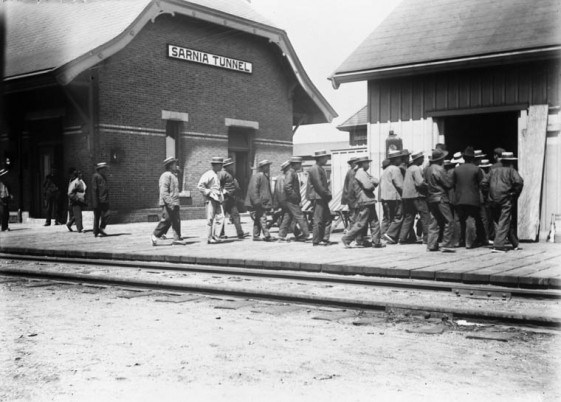The Dominion Elections Act (1900) and its amendments in spirit continued the exclusion of Chinese that was conceived in Sir John A. Macdonald’s Electoral Franchise Act (1885).
In 1898, the Franchise Act was fixed to state in s. 5 (a) that “the qualifications necessary to entitle any person to vote thereat shall be those established by the laws of that province as necessary to entitle such person to vote in the same part of the province at a provincial election.”
The Act was designed to give the provinces the responsibility of drawing up elections lists; it also clarified that the provinces were not allowed to disqualify voters, on grounds of their occupation, employment with provincial or federal governments and belonging to any class of person. For a brief time, citizens of Chinese or Japanese descent who were resident in British Columbia were permitted to vote in federal elections, even though they could not vote provincially.
In 1920, amendments to the Dominion Elections Act upheld eligibility to vote in federal elections as dependent on a person being registered on the provincial voters list; however, it added a clause that stipulated that any person disenfranchised by a province “for reasons of race” would also be excluded from the federal franchise. Voting continued to be regarded as a privilege, rather than as a right.
While voting rights were withheld from Chinese, other statutes, especially enforcement of various amendments to immigration legislation and the eventual imposition of the Chinese Exclusion Act, made life difficult for many Chinese families that were often separated solely by discriminatory Canadian law and policy.
Exclusion from federal elections, based on provincial voters lists, endured until amendments to the Dominion Elections Act in 1948 removed its provincial piggy-backing of race provisions. Dismantling racism in federal elections law followed repeal of the Chinese Exclusion Act, and broader reforms brought about by a change in political and social attitudes affected by the Second World War.








